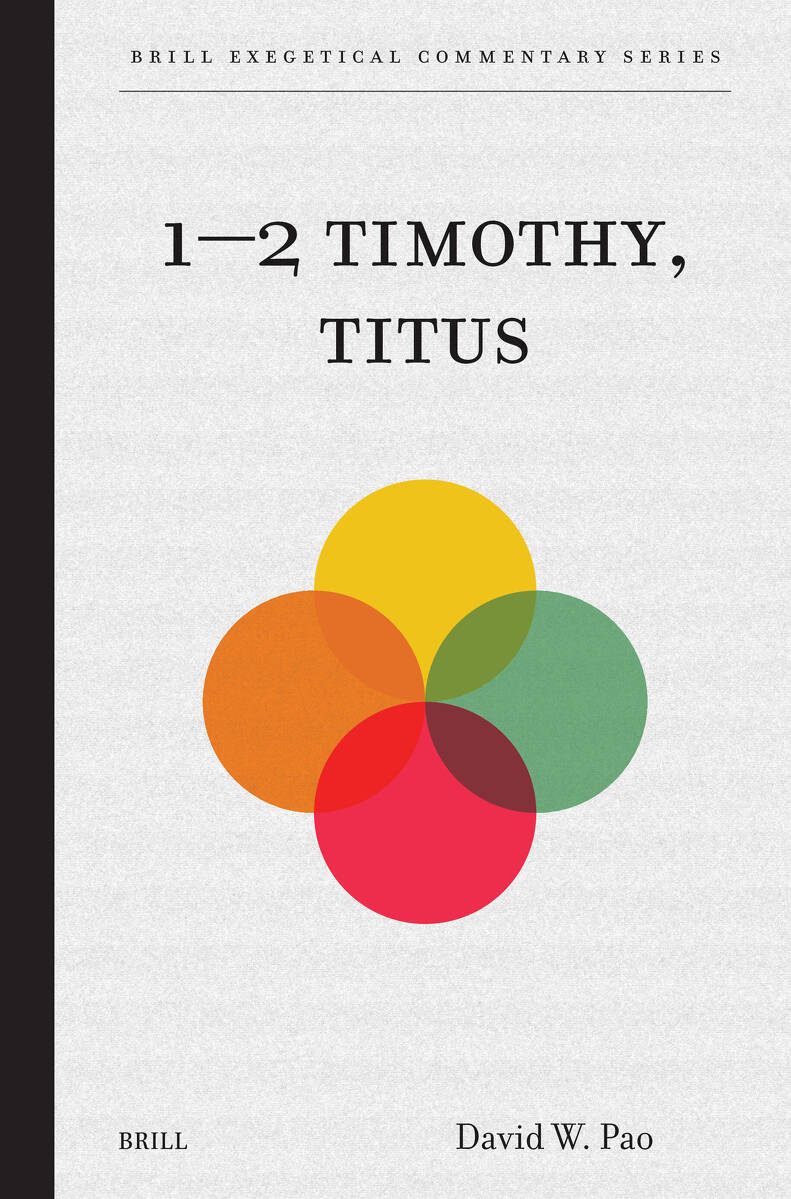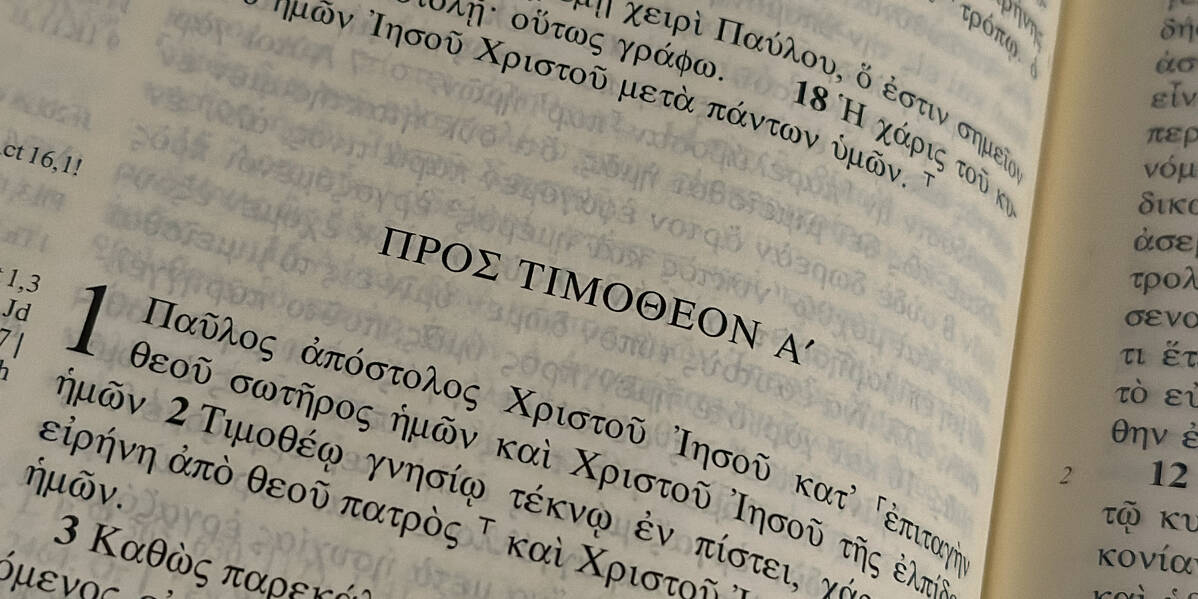David Pao’s new commentary on the Pastoral Epistles (in the Brill Exegetical Commentary Series) is nothing short of a tour de force. Pao’s love and regard for the Scriptures are on full display in his meticulous attention to the Greek language of the text, his deep learning of the ancient world within which these texts were written, and in his fresh theological reflections and ecclesial exhortations.
 There is a long history of reading the Pastoral Epistles as if they are developing rules and orders for the church in such a way that they blandly accommodate Christianity to the values of broader society. But Pao consistently shows, instead, how Paul’s gospel of Jesus Christ subverts the values of broader society and sets forth a loving counter-cultural vision of Christian life. Allow me to share just a few brief examples of the powerful subversive nature of the gospel as set forth by Pao (all from 1 Timothy). We can see here that while the church does not seek to antagonize or fight against the world, as “the household of God” (1 Tim. 3:15) the church takes its values from the gospel of God and not broader society.
There is a long history of reading the Pastoral Epistles as if they are developing rules and orders for the church in such a way that they blandly accommodate Christianity to the values of broader society. But Pao consistently shows, instead, how Paul’s gospel of Jesus Christ subverts the values of broader society and sets forth a loving counter-cultural vision of Christian life. Allow me to share just a few brief examples of the powerful subversive nature of the gospel as set forth by Pao (all from 1 Timothy). We can see here that while the church does not seek to antagonize or fight against the world, as “the household of God” (1 Tim. 3:15) the church takes its values from the gospel of God and not broader society.
- In 1 Tim. 2:1-7 Pao shows how Paul calls for all believers to pray for kings and all who rule, but those who are in power are simply examples of “all humans” (2:1). There is only one God who is King and one priestly mediator – Jesus Christ. Jesus embodies his role as mediator through his cruciform death rather than forceful imperial military might.
- While the ancient world was well known as an honor-shame culture, Pao argues that Paul is emphatic that it is only God who can bestow honor (1:17; 6:16). God’s honor is not assumed to be for the powerful, elite, and wealthy; rather, God’s honor can be granted to those who are young, like Timothy (4:12), and even widows (5:2).
- Whereas many in the ancient world desired to be wealthy benefactors and gift-givers for the way in which their gifts would draw attention to themselves and increase their honorable status, Pao notes that Paul exhorts Christians to give honor to everyone (6:10) and vulnerable widows as well (5:2). Furthermore, Paul calls on benefactors to do good deeds not by charitable acts that put others in their debt, but through imitating Jesus, the one who did not use his status for himself but, instead, made the “good confession” in the presence of Pilate on his way to the cross (6:13). In other words, when Paul calls upon believers to do good works, these charitable deeds involve embracing one’s subservience to the crucified Messiah.
Those who know me may know that David Pao is both my current colleague (as the Academic Dean) and former professor and mentor (when I was a student at TEDS). When people have asked me who has influenced me the most in terms of my theological vocation, I have consistently pointed to him – especially his careful and creative approach to reading the New Testament as one of the greatest influences upon my life in my reading and teaching of the Scriptures. I am grateful now for the way in which this remarkably careful and fresh reading of the Pastoral Epistles will expose pastors, scholars, and students to these three important Pauline letters.


